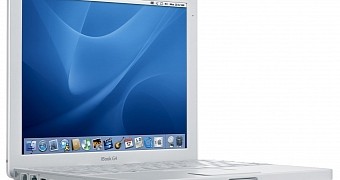Rumor has it that Apple might be looking into new projects to help expand its hardware portfolio, and more recently, evidence has indicated that the company may even explore the possibility of launching a new laptop powered by iOS or macOS.
At first glance, this doesn’t make much sense given that Apple already has an entire series of laptops on the market, but a closer look at what such a project would mean for the future of the company proves otherwise.
First of all, let’s review all the rumors and see what we (might) know so far. Basically, the new laptop would have the following capabilities:
| Running iOS/macOS ARM chip Touchscreen LTE support GSP Water-resistant EFI boot system |
But with an iOS- or macOS-powered device available at a more affordable price, Apple might have a different goal in mind: tackle the education market in a much more effective way than it does right now.
A more affordable laptop for the education market would provide students and teachers with the necessary gear for the basic activities, while also boasting the security that Apple has already become famous for. I know what you’re going to say, that’s what the iPad Pro is for, but such a laptop could finally help Apple have a more powerful rival for Chromebooks and Microsoft’s Windows 10 with S Mode devices.
No matter if it’s powered by iOS or macOS, the purpose of this device is to be a high-quality low-cost model without compromising performance. In fact, Apple has an easy mission here. The customer category that this laptop would be targeting doesn’t even need anything else than basic capabilities like secure browsing, emails, and access to multimedia content, pretty much just like an iPad Pro, but with a bigger focus on productivity.
This sounds a lot like Microsoft, isn’t it? Microsoft itself has been very interested in the education market, and the company last year launched its own device aimed at this market, the Surface Laptop, as well as a dedicated version of Windows 10 restricted to the Microsoft Store (originally called Windows 10 S but later renamed to Windows 10 with S Mode).
Without a laptop that can serve this purpose, Apple is clearly missing an excellent opportunity here. The iPad Pro is at this point Apple’s main player in the education market, but a more affordable MacBook would help upgrade the capabilities of its hybrid device.
Apple has recently been rumored to be increasingly interested in universal apps that would bring together the worlds of macOS and iOS, and this new laptop could be the one to pioneer this effort.
But at the same time, mixing the premium image of the MacBook with a low-cost product doesn’t sound like something that Apple would do. As a result, what it might do is create a new product family in order to avoid impacting the premium image of its existing laptops. This means that while the MacBook will continue to be available with a premium price, the new model will join the lineup as a more affordable configuration.
The iBook brand seems to make a lot of sense now given all these rumors, especially because Apple originally used this name for the laptop lineup until 2006.
Later on, iBooks was the moniker of Apple’s book reader for iOS and macOS, renamed to Books earlier this year with the release of iOS 11.3. The timing seems just about right, as Apple could use it for the new laptop, if it ever launches.
At this point, all of these seem to align nicely, though it goes without saying that there’s no guarantee that Apple could go this way and launch a more-affordable iBook-branded laptop.
But at some level, iBook can help Apple fill a gap that’s holding back the company from growing stronger in the education market, and given its powerful brand worldwide, there’s a good chance such a device would sell like hot cakes.

 14 DAY TRIAL //
14 DAY TRIAL //